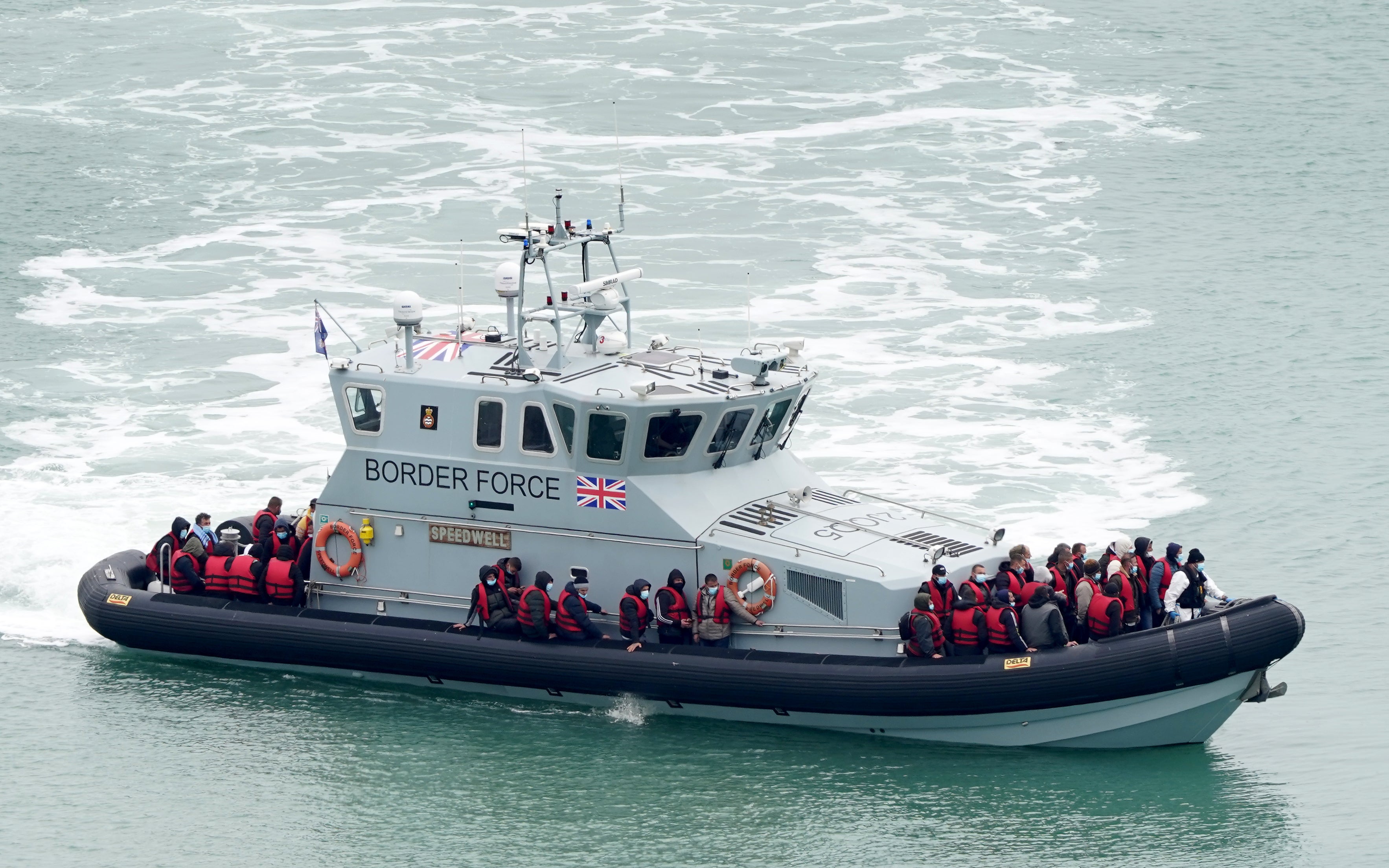Government’s Rwanda plan ‘is not safe’, court told
Up to 130 people have been notified they could be removed on the inaugural flight, due to take off on Tuesday.

The Government’s plan to send migrants to Rwanda is “not safe”, lawyers have told the High Court.
Migrants due to be given a one-way ticket to the east African nation as part of Home Secretary Priti Patel’s bid to curb Channel crossings, as well as campaign groups and a union, have asked judges to block their upcoming deportation flight.
Up to 130 people have been notified they could be removed. The court heard 31 people are due on the first flight on Tuesday, with the Home Office planning to schedule more this year.
Lawyers for almost 100 migrants have submitted legal challenges asking to stay in the UK with the remaining anticipated to follow suit this week.
On Friday, the first stage of action began, brought by lawyers on behalf of two migrants alongside the Public and Commercial Services union (PCS), which represents more than 80% of Border Force staff, as well as groups Care4Calais and Detention Action who are challenging the policy on behalf of everyone affected.
Raza Husain QC, for the claimants, told the High Court: “The system is not safe. It is not that it is not safe after July, it is just not safe.
“You may be arbitrarily denied access to it. If you do get into it, there are concerns about the impartiality of the decision-making.”
He continued: “The evidence is that if you are not from a neighbouring country, then there are high levels of rejection.”
The procedure is simply unsafe
Mr Husain said this included asylum seekers from Syria, who are largely accepted by the UK system.
“The procedure is simply unsafe,” he added.
Calling for an evidence-based assessment for the policy, “not an aspirational basis, or hopes”, Mr Husain said: “The Secretary of State’s conclusion as to the safety of Rwanda was irrational. We have a very strong case on that,” later adding: “We say there is no answer whatsoever to this case on irrationality on the assessment that Rwanda’s procedures are safe.”
The barrister later said that the agreement between the two countries, known as a Memorandum of Understanding, was “unenforceable”.
“Nothing monitors it, there’s no evidence of structural change. The risks are just too high,” he added.
Mr Husain also said a Home Office document used by the department in the claim was “replete with the suggestion that the UNHCR (the UN refugee agency) has given this plan a green light”.
“Regrettably, the material in this application demonstrates that to be misleading,” he added.
The UN refugee agency, the UNHCR, had a number of concerns about the asylum process in Rwanda, including discriminatory access to asylum – including for LGBT people – a lack of legal representation and interpreters, and difficulties in appealing, the court heard.
Mr Husain said: “These are concerns that have been communicated to the UK authorities and yet the secretary of state’s position … is that the UNHCR has given this plan a green light.
“That is a false claim.”
Laura Dubinsky QC for UNHCR, which is intervening in the claim, said there had been “inaccuracies” in the way the agency’s views had been described by the Home Office.
She told the court that the agency is concerned about the risk of “serious, irreparable harm” caused to refugees sent to Rwanda, adding the body “in no way endorses the UK-Rwandan arrangement”.
“UNHCR is not involved in the UK-Rwanda arrangement, despite assertions to the contrary made by the Secretary of State,” she later said.
Ms Dubinsky said the agency had “serious concerns about Rwandan capacity”, adding: “UNHCR itself is not in a position to rectify those deficiencies.
“The problems described are deep-rooted structural problems, they are not capable of speedy resolution,” the barrister continued.
She also told the High Court in London that UNHCR has had “a number of meetings” with the Home Office and has said they believe the policy is unlawful.
In written submissions, Home Office lawyers urged the court to reject the application, arguing that it “fails at the first stage”, adding: “The claimants have not identified a serious issue to be tried, still less the strong case they allege for the grant of relief at trial.”
In the court documents, Rory Dunlop QC and Mathew Gullick QC, for the department, said: “The application for interim relief should be dismissed. In the alternative, any order for interim relief should be limited.”
They said there was a “strong public interest in permitting these removals to proceed as scheduled” and a “clear public interest in deterring the making of dangerous journeys and the activities of criminal smugglers”.
The papers also disclose the Home Office has already cancelled removal directions for three people who had asked the High Court to prevent their deportation to Rwanda. In the hearing, it emerged two more people will also have them cancelled.
The claim and application runs to “many hundreds of pages”, the Home Office lawyers said, as they suggested there had been delays in serving the papers, arguing: “Given the volume of material that has now been served, this delay has prejudiced the defendants’ ability to respond to the interim relief application.”
They also cited “procedural issues” over the way in which the claim has been made.
Judge Mr Justice Swift said the final hearing in the case will be heard in July.
The Home Office has said it expected legal challenges but is “determined to deliver this new partnership” and insisted the policy “fully complies with international and national law” while Downing Street said Boris Johnson remains confident the policy is legal.
The High Court is due to hear a further challenge to the policy on Monday, brought by refugee charity Asylum Aid and supported by fellow campaign group Freedom From Torture.
Bookmark popover
Removed from bookmarks